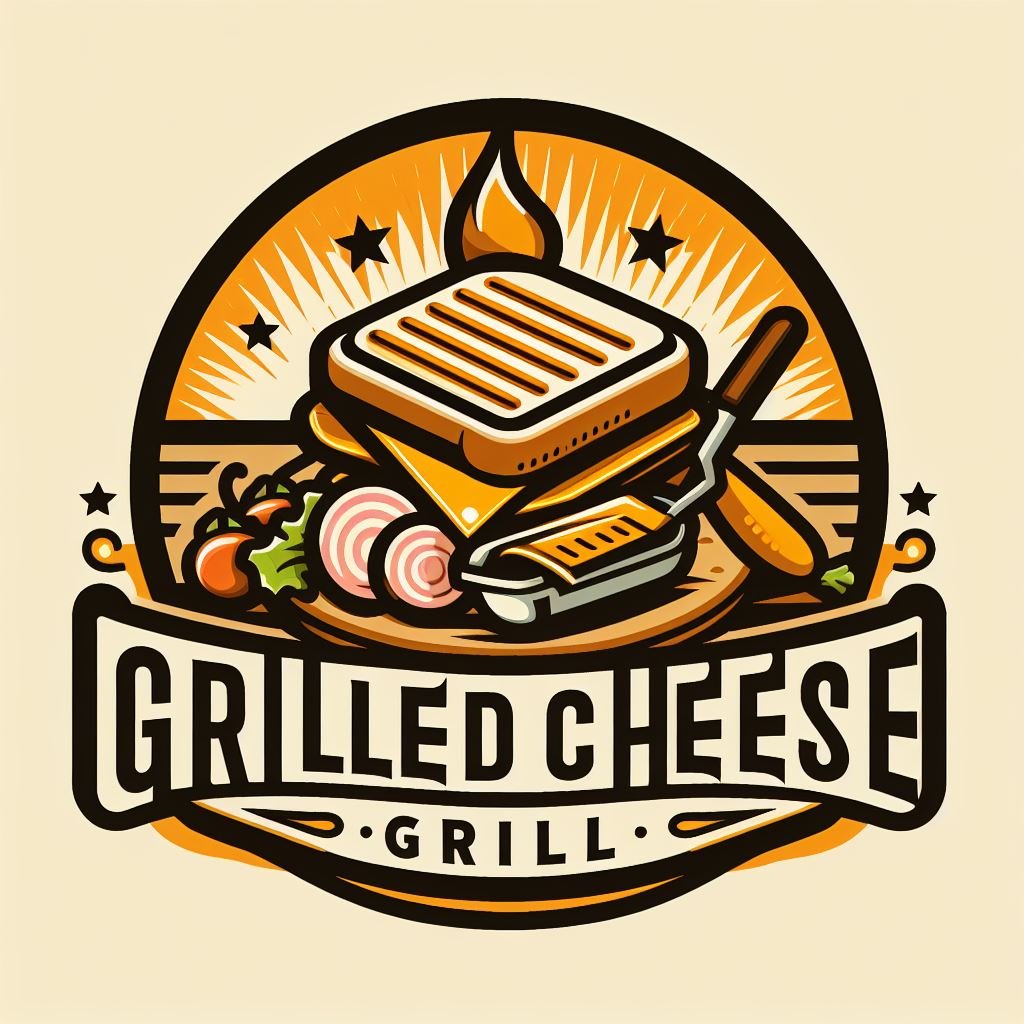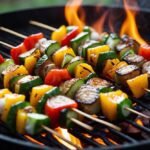Grilled salmon is a popular dish that is not only delicious but also very healthy. Salmon is a great source of protein and omega-3 fatty acids, which are essential for maintaining good health. Grilling the salmon adds a smoky flavor that enhances its natural taste.

Preparing the salmon for grilling is a simple process that requires minimal effort. The salmon can be marinated in a variety of different sauces or spices, depending on personal preference. Once the salmon is marinated, it can be placed on the grill and cooked to perfection. Grilling salmon is a quick and easy way to prepare a healthy and delicious meal.
Grilled salmon can be prepared in a variety of different ways, with each variation offering a unique taste experience. Some popular grilled salmon variations include honey mustard glazed salmon, lemon pepper salmon, and teriyaki salmon. These variations offer different flavors and can be paired with a variety of side dishes to create a complete meal.
Key Takeaways
- Grilled salmon is a healthy and delicious dish that is easy to prepare.
- There are many variations of grilled salmon that offer unique flavor experiences.
- Grilled salmon can be paired with a variety of side dishes to create a complete meal.
Preparing the Salmon

Choosing the Right Salmon
When it comes to grilling salmon, choosing the right type of fish is key. Wild-caught salmon is generally considered to be the best option, as it tends to have a more robust flavor and firmer texture than farm-raised salmon. King salmon and sockeye are popular choices for grilling, but other types of salmon can also work well.
Salmon Preparation
Before grilling the salmon, it is important to properly prepare it. Start by rinsing the salmon under cold water and patting it dry with paper towels. Then, season the salmon with kosher salt, black pepper, and olive oil. For added flavor, consider using a salmon marinade or seasoning blend that includes ingredients like garlic powder, Dijon mustard, smoked paprika, or lemon pepper. Rub the seasoning onto the flesh side of the salmon, making sure to coat it evenly.
Grilling Techniques
When grilling salmon, it is best to cook it skin side down. This helps to prevent the salmon from sticking to the grill and allows the skin to become crispy and flavorful. Preheat the grill to medium heat or medium-high heat and oil the grates to prevent sticking. For added flavor and texture, consider grilling the salmon with foil packs or using a grill pan.
Avoiding Common Mistakes
One common mistake when grilling salmon is cooking it for too long. Overcooked salmon can become dry and tough. To ensure that the salmon is cooked to perfection, use an instant-read thermometer to check the internal temperature. The salmon should be cooked to an internal temperature of 145°F. Another common mistake is using too much oil or fat, which can cause the salmon to stick to the grill. Use a light coating of oil or cooking spray to prevent sticking.
Serving and Accompaniments
Grilled salmon is delicious on its own, but it can also be served with a variety of accompaniments. Consider serving it with grilled asparagus, roasted vegetables, or a side of rice or potatoes. Fresh herbs like dill or parsley can also add a pop of flavor. For a heartier meal, consider serving grilled salmon with steak or a side of pasta. Tartar sauce, tomato, and macaroni salad are also popular choices for serving with grilled salmon.
Storing Leftovers
If you have leftover grilled salmon, store it in an airtight container in the refrigerator for up to three days. To reheat, gently warm the salmon in the microwave or oven. Grilled salmon can also be used in a variety of dishes, like salads or pasta.
Health Considerations
Grilled salmon is a great source of protein and nutrition, but it is important to be mindful of the ingredients used in preparation. Seasonings and marinades can add sodium and fat to the dish, so use them in moderation. When grilling salmon, it is also important to monitor the temperature to avoid undercooked or overcooked salmon.
Grilled Salmon Variations

When it comes to grilling salmon, there are various ways to mix things up and add some excitement to your meal. Here are some grilled salmon variations to try out:
Flavor Variations
One of the simplest ways to switch things up is to change the seasoning or marinade you use for your grilled salmon. A classic marinade is a mixture of olive oil, lemon juice, garlic, salt, and pepper. However, you can experiment with other ingredients like fresh herbs, blackened seasoning, mustard, lime, or soy sauce to add some extra flavor.
Another option is to try different types of wood chips when smoking your salmon. Cedar, hickory, and alder are popular choices that can give your salmon a unique taste.
Cooking Alternatives
While grilling salmon is a popular cooking method, there are other alternatives to consider. For example, you can try cooking salmon on a cedar plank or wrapping it in foil and grilling it that way. Baking salmon in the oven is another option that can result in a delicious meal.
If you’re looking to mix things up even more, you can try grilling other types of fish like cod or experimenting with different recipes altogether.
No matter what variation you choose, it’s important to use quality ingredients and pay attention to the salmon’s internal temperature to ensure it’s fully cooked. With these grilled salmon variations, you can add some excitement to your meal and impress your family and friends with your grilling skills.
Frequently Asked Questions

What are the best marinades for grilled salmon?
Salmon is a versatile fish that can be marinated in a variety of flavors. Some popular marinades for grilled salmon include lemon and herb, garlic and soy sauce, honey mustard, and teriyaki. It’s important to note that acidic marinades like citrus or vinegar can actually “cook” the salmon, so it’s best to marinate for no more than 30 minutes.
How can I ensure my grilled salmon fillet is cooked perfectly?
The best way to ensure a perfectly cooked salmon fillet is to use a meat thermometer. The internal temperature of the salmon should reach 145°F (63°C). Another tip is to cook the salmon skin-side down for the first 3-4 minutes, then flip and cook for an additional 3-4 minutes.
What temperature should salmon be grilled at?
Salmon should be grilled at a medium-high heat, around 375-400°F (190-204°C). This allows for a crispy exterior while keeping the inside moist and tender.
How long should I grill salmon for optimal taste and texture?
The optimal grilling time for salmon depends on the thickness of the fillet. A general rule of thumb is to grill for 4-6 minutes per ½ inch (1.25 cm) of thickness. It’s important to not overcook the salmon, as it can become dry and tough.
What are some flavorful seasoning options for grilled salmon?
Some flavorful seasoning options for grilled salmon include dill, lemon pepper, Cajun seasoning, and smoked paprika. A simple yet delicious seasoning is salt and black pepper.
How does grilling salmon in foil affect the cooking process?
Grilling salmon in foil can help to lock in moisture and flavor, as well as prevent sticking to the grill grates. It’s important to note that grilling in foil may increase the cooking time, so be sure to adjust accordingly.



